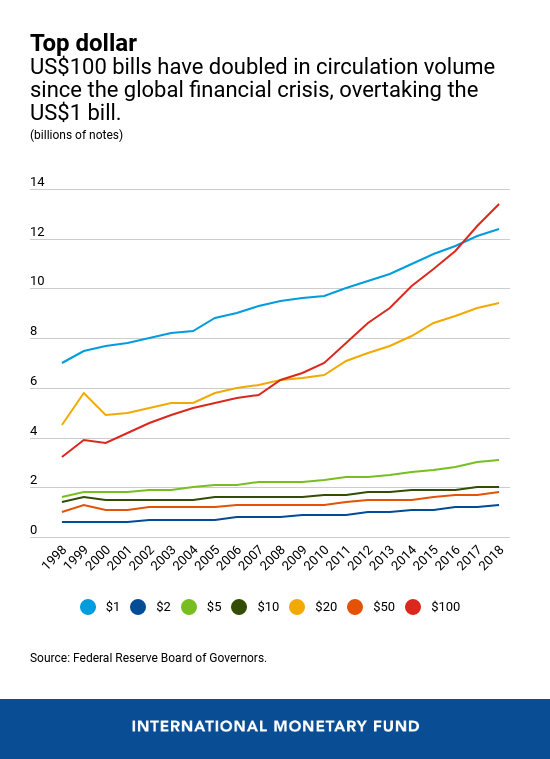Back in 2017, with the stock market fresh off its best January performance in years, the $100 bill emerged as the most widely circulated currency in the world, overtaking the $1 bill for the first time ever.
Two years later, as you can see by this “chart of the week” from the International Monetary Fund, it’s still all about the Benjamins.

According to the Federal Reserve, the number of $100 bills in circulation has roughly doubled since the global financial crisis, despite the rise of cashless options, like Venmo and PayPal, and the notion that bitcoin BTCUSD, +0.50% and other cryptocurrencies will one day become more widespread.
The driver of the demand doesn’t come from within U.S. borders, either. The IMF pointed out that most — an estimated 80% — are held abroad. That’s compared to more than 60% of all U.S. bills being held overseas, up from 30% in 1980.
One reason for the sharp surge in demand could be geopolitical instability, the IMF said, as a thirst for cash from other countries tends to increase during unsettled times. By that measure, the U.S. dollar is seen as a safe haven in troubled areas like Venezuela, the Middle East and elsewhere.
Then there’s its use for more nefarious activities.
“The underground economy, the informal economy, the criminal economy — all of it contributes certainly to the appeal of large-denomination bills,” IMF Assistant General Counsel Nadim Kyriakos-Saad said in the report.
But Harvard University economics professor Ken Rogoff, who used to serve as the IMF’s chief economist, said it could be another matter altogether.
“Underground demand for paper currency has been surely rising in part because interest rates and inflation are exceptionally low,” he was quoted as saying in the IMF report. “The dollar is now the only global currency; the euro has stalled, and the renminbi is decades away from challenging.”








